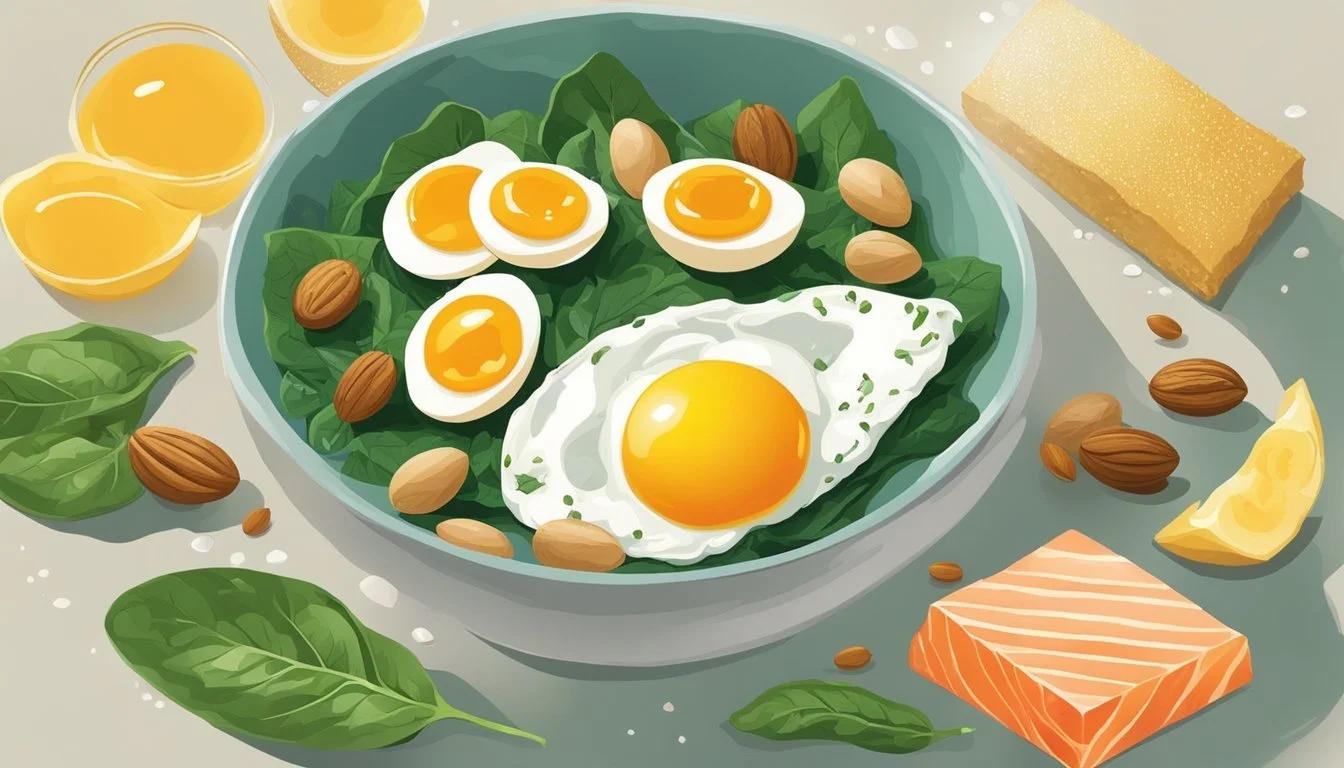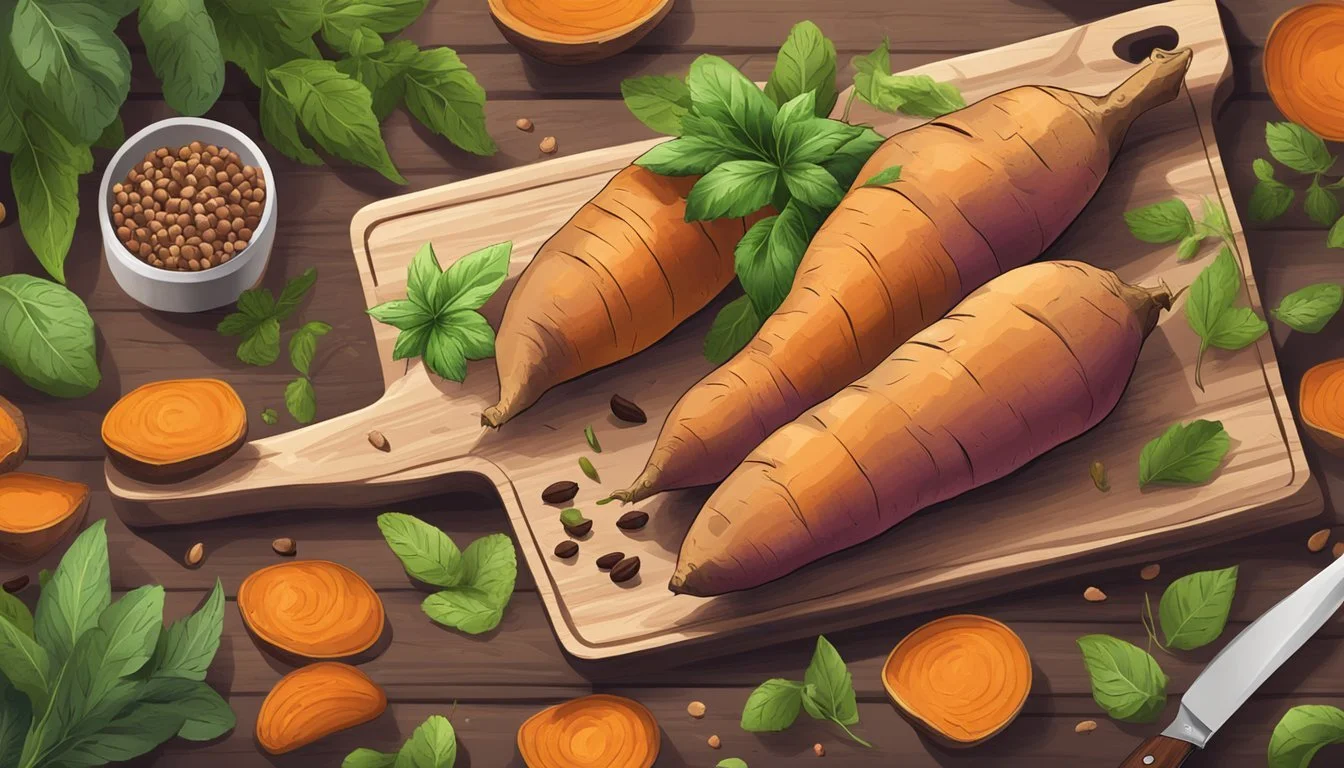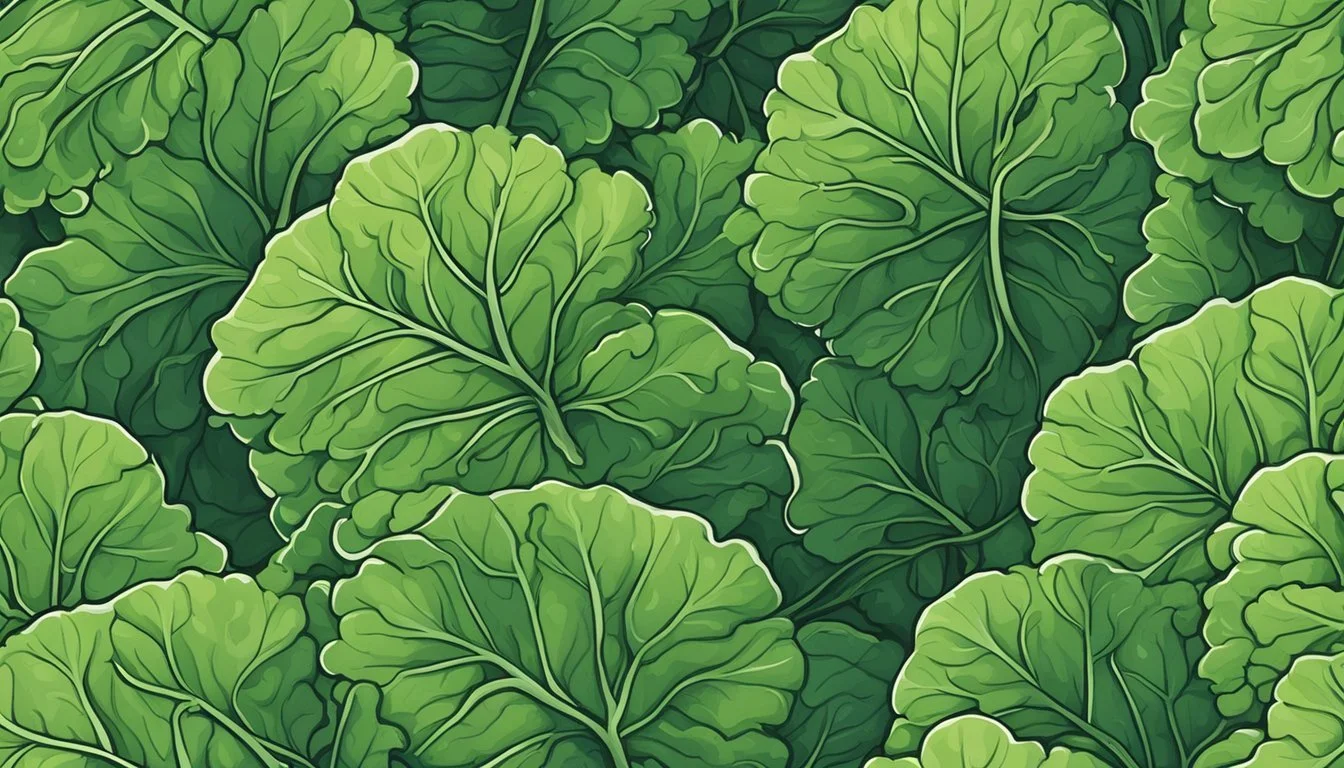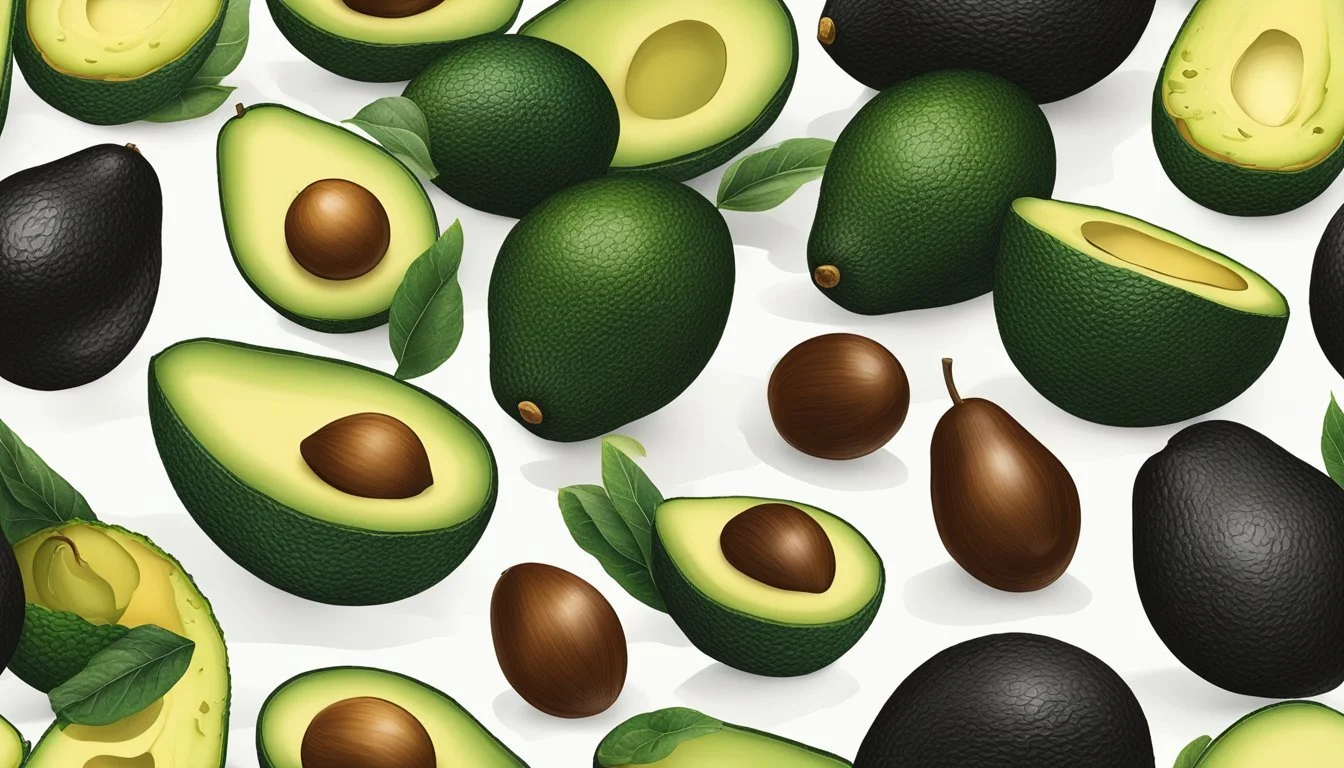Nutrient-Rich Foods That Boost Your Body's Keratin Production
Keratin, a crucial protein produced naturally by the body, plays a fundamental role in maintaining healthy hair, skin, and nails. Various foods can effectively enhance keratin production, leading to noticeable improvements in these areas.
Incorporating specific nutrients into one's diet can significantly boost the body's keratin levels. By understanding which foods are beneficial, individuals can take proactive steps towards achieving healthier, stronger hair, skin, and nails through natural dietary choices.
1) Salmon
Salmon is an excellent source of protein and omega-3 fatty acids. These nutrients are crucial for the production of keratin, a protein that strengthens hair, skin, and nails.
Rich in biotin, salmon supports the body's natural keratin production. Biotin aids in the synthesis of amino acids, which are the building blocks of keratin.
Incorporating salmon into the diet can enhance hair's elasticity and shine. It also helps maintain healthy skin and strong nails. Regular consumption of salmon benefits overall keratin levels.
Salmon's high content of vitamin D and selenium also contributes to hair health. These nutrients work together to ensure the proper functioning of hair follicles and scalp health.
2) Eggs
Eggs are an excellent source of nutrients that promote keratin production. Rich in biotin, a single cooked egg offers about 10 micrograms of this essential nutrient, contributing significantly to the daily required intake. This makes eggs an easy and effective way to boost keratin levels naturally.
In addition to biotin, eggs are also a great source of high-quality protein. Protein is crucial for the synthesis of keratin in the body. A single egg contains roughly 6 grams of protein, providing the necessary building blocks for strong hair, skin, and nails.
Moreover, eggs are packed with other essential nutrients like zinc and selenium. These elements also support overall hair health and contribute to the keratin production process. Including eggs in the diet can help maintain the integrity and strength of keratin structures in the body.
Versatile and easy to cook, eggs can be incorporated into various meals, making it simple to reap the benefits of these essential nutrients daily. Whether scrambled, boiled, or poached, consuming eggs is a straightforward method to enhance keratin production and promote healthy hair, skin, and nails.
3) Sweet Potatoes
Sweet potatoes are a valuable addition to a diet aimed at boosting keratin levels. They are rich in provitamin A, which is essential for keratin synthesis.
A medium sweet potato, weighing about 150 grams, provides 1,150 micrograms of provitamin A. This amount exceeds the daily recommended value for vitamin A intake.
Vitamin A supports skin and hair health by promoting the production of keratin. It's an essential nutrient for maintaining strong hair and healthy skin.
Adding sweet potatoes to meals can be easy and versatile. They can be baked, mashed, or roasted, making them a convenient option for various dishes.
Including sweet potatoes in a balanced diet can contribute significantly to the body's natural keratin production. This can lead to healthier hair and skin.
4) Kale
Kale is a nutrient-dense leafy green that can significantly contribute to keratin production in the body. Rich in vitamins A, C, and K, kale supports healthy hair, skin, and nails. These vitamins play key roles in the growth and repair of tissues.
In addition to vitamins, kale contains essential antioxidants. These antioxidants help combat cellular damage, promoting overall well-being.
The presence of sulfur compounds in kale aids in the synthesis of keratin. Sulfur is necessary for the structural integrity of keratin proteins.
Kale also provides iron and omega-3 fatty acids, which support hair growth and nourishment. This combination can enhance the strength and vitality of keratin-rich tissues.
5) Spinach
Spinach is a nutrient-dense vegetable that plays a significant role in promoting keratin production. It is rich in vitamins A and C, which are essential for healthy skin and hair. These vitamins aid in the production of sebum, the natural oil that conditions the scalp.
This leafy green also provides iron, a crucial mineral that facilitates oxygen transport to hair follicles, promoting hair strength and growth. Incorporating spinach into meals can help ensure a steady supply of iron and vitamins necessary for keratin synthesis.
Additionally, spinach contains antioxidants that protect hair and skin cells from damage. Consuming spinach regularly can support overall keratin levels, contributing to healthier hair, skin, and nails.
6) Lentils
Lentils are a fantastic source of plant-based protein. They play a crucial role in promoting keratin production, which is essential for maintaining strong hair, skin, and nails.
Rich in iron and biotin, lentils provide the necessary nutrients to support hair structure and growth. Iron aids in delivering oxygen to hair follicles, boosting their health and vitality.
Lentils also contain folate and B-complex vitamins. These nutrients support the maintenance and repair of hair tissues, contributing to healthier hair follicles. Including lentils in a balanced diet can help strengthen keratin and enhance overall hair and nail health.
Incorporating lentils into meals is simple. They can be added to soups, stews, salads, or used as a base for various vegetarian dishes. Regular consumption can have a positive effect on keratin levels and overall hair quality.
7) Sunflower Seeds
Sunflower seeds are a potent source of nutrients vital to keratin production. A quarter cup of sunflower seeds provides approximately 7 grams of protein and 2.6 micrograms of biotin, which constitutes 9% of the daily recommended value.
These seeds also supply a significant amount of zinc, with 1.5 mg per ounce, and B vitamins, which aid in keratin synthesis. Additionally, sunflower seeds are rich in Vitamin E, covering around 80% of the daily requirements in a quarter cup. This quantity helps boost antioxidant levels in the body, promoting healthier skin and hair.
Including sunflower seeds in the diet can be an effortless way to support overall keratin levels. They can be enjoyed as a snack or added to various dishes for enhanced nutritional benefits.
8) Chia Seeds
Chia seeds are a nutritional powerhouse, known for their high protein content. This protein helps strengthen hair by providing a shiny, protective covering called keratin.
Rich in omega-3 fatty acids, chia seeds offer essential nutrients that promote a healthy scalp. A healthy scalp is crucial for hair growth, creating an optimal environment for strong and vibrant hair.
In addition to protein and omega-3s, chia seeds contain minerals like copper and phosphorus. These minerals play a significant role in thickening hair strands and maintaining overall hair health.
Incorporating chia seeds into one's diet can help nourish hair follicles. This nourishment supports not only growth but also the overall strength and appearance of hair.
9) Avocado
Avocado is a nutrient-dense fruit known for its beneficial effects on hair health. Rich in vitamins B6, D, E, and biotin, it provides essential nutrients that support the structure of keratin, the protein that makes up hair, skin, and nails.
The healthy fats in avocado, particularly monounsaturated fats, play a critical role in maintaining hair moisture. This helps prevent breakage and encourages strong, healthy hair growth.
Additionally, avocado contains minerals like iron and magnesium. These minerals are pivotal for oxygenating hair follicles and promoting overall hair strength.
Its folic acid content is important for cell division, which supports follicle health and hair regeneration. The combination of these nutrients makes avocado an effective food for enhancing hair quality.
10) Sweet Peppers
Sweet peppers are a vibrant addition to any diet, known for their rich content of essential nutrients.
They are particularly abundant in vitamin C, which is crucial for keratin production. One yellow pepper can supply up to 456% of the daily vitamin C requirement for females and 380% for males.
Vitamin C's antioxidant properties support hair health by combating free radical damage. This helps maintain strong, healthy hair and may promote growth.
Moreover, sweet peppers contain vitamin A, another nutrient that aids in keratin synthesis. Including sweet peppers in your diet can help sustain healthy skin and hair.
Incorporating sweet peppers into meals is simple. They can be eaten raw, roasted, or added to salads and stir-fries. Their versatility and nutritional benefits make them an excellent choice for boosting keratin levels.
Nutritional Components That Aid Keratin Production
Several nutrients are essential for boosting keratin production, which is vital for healthy hair, skin, and nails. Among these, amino acids and proteins, along with specific vitamins and minerals, play the most significant roles.
Amino Acids and Proteins
Keratin is a type of protein, and consuming foods rich in proteins and amino acids helps the body produce more of it. Eggs stand out as they are a rich source of biotin and protein. Additionally, salmon and other fatty fish provide high-quality protein.
Sunflower seeds, with their high protein content, and broccoli, known for its amino acid profile, are also excellent choices. These foods contain essential building blocks that support the production of keratin, contributing to stronger and healthier hair, skin, and nails.
Vitamins and Minerals
Biotin (Vitamin B7) is particularly important in promoting keratin production. Eggs, sweet potatoes, and almonds are notable sources of biotin. Vitamin A, found in carrots and kale, supports skin health and keratin synthesis.
Minerals such as zinc and iron are also crucial. Garlic and spinach contain these minerals, which aid in the keratinization process. Maintaining adequate levels of these vitamins and minerals ensures that the body has the necessary components to effectively produce keratin.
How Diet Influences Keratin Levels
Diet plays a critical role in the body's production of keratin, a key protein that contributes to the health of hair, skin, and nails. Eating nutrient-rich foods can enhance keratin production and prevent deficiencies that may impact overall health.
The Role of a Balanced Diet
A balanced diet supplies the essential nutrients required for keratin synthesis. Biotin and Vitamin A are particularly crucial. Biotin, found in eggs, nuts, and legumes, supports the metabolism of proteins like keratin. Vitamin A, present in carrots, sweet potatoes, and butternut squash, aids in cellular growth and keratin maintenance.
Proteins are another essential element. Foods like fish, chicken, and dairy provide the amino acids needed for keratin formation. These amino acids serve as building blocks for the protein. Including foods rich in antioxidants such as berries and leafy greens can also protect the cells that produce keratin from damage.
Common Dietary Deficiencies
Certain deficiencies can hinder keratin production. Biotin deficiency can lead to brittle hair and nails since it is integral to keratin infrastructure. Signs of biotin deficiency include hair loss and skin rashes. Including biotin-rich foods helps mitigate these issues.
Protein deficiency can also impact keratin production. This deficiency might result in weaker nails and hair. Iron deficiency, common in non-meat eaters, can affect the health of hair due to its role in oxygen transport. Iron-rich foods such as spinach, legumes, and red meat should be part of the diet to support keratin levels.
By addressing these dietary aspects, individuals can boost their keratin levels and maintain healthy hair, skin, and nails.






